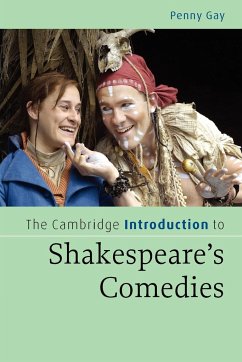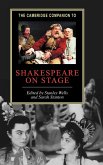Why did theatre audiences laugh in Shakespeare's day? Why do they still laugh now? What did Shakespeare do with the conventions of comedy that he inherited, so that his plays continue to amuse and move audiences? What do his comedies have to say about love, sex, gender, power, family, community, and class? What place have pain, cruelty, and even death in a comedy? Why all those puns? In a survey that travels from Shakespeare's earliest experiments in farce and courtly love-stories to the great romantic comedies of his middle years and the mould-breaking experiments of his last decade's work, this book addresses these vital questions. Organised thematically, and covering all Shakespeare's comedies from the beginning to the end of his career, it provides readers with a map of the playwright's comic styles, showing how he built on comedic conventions as he further enriched the possibilities of the genre.
'... new historicism tends to read like a rebarbative coded message to the inmates of other North American graduate schools, whereas Gay's book strikes me as a balanced voice of experience and wisdom. ... Gay's is a book you might read without being compelled to, for the pleasure of learning more about plays that continue to work on the stage and on the page. ... obscure, reader-unfriendly work. Too many of us, in accepting a contract to write for a student or general audience, do not try hard enough to be clear and comprehensive, or even slip into passages of professional obscurity to show that we know we are slumming it. Such vanity is something Gay steers well clear of. ... She does theory with a light and relevant touch ... This is what literary criticism needs ...' Robert Phiddian, Literary Studies








